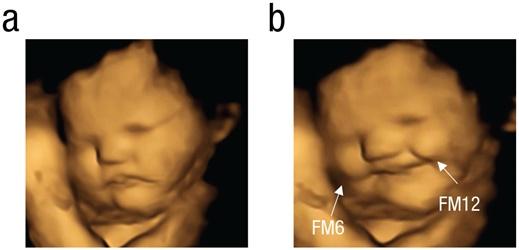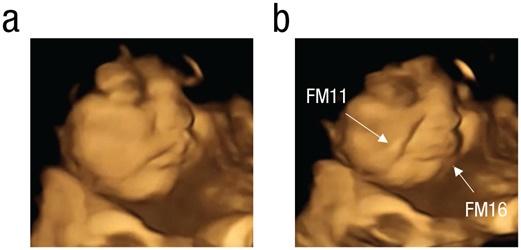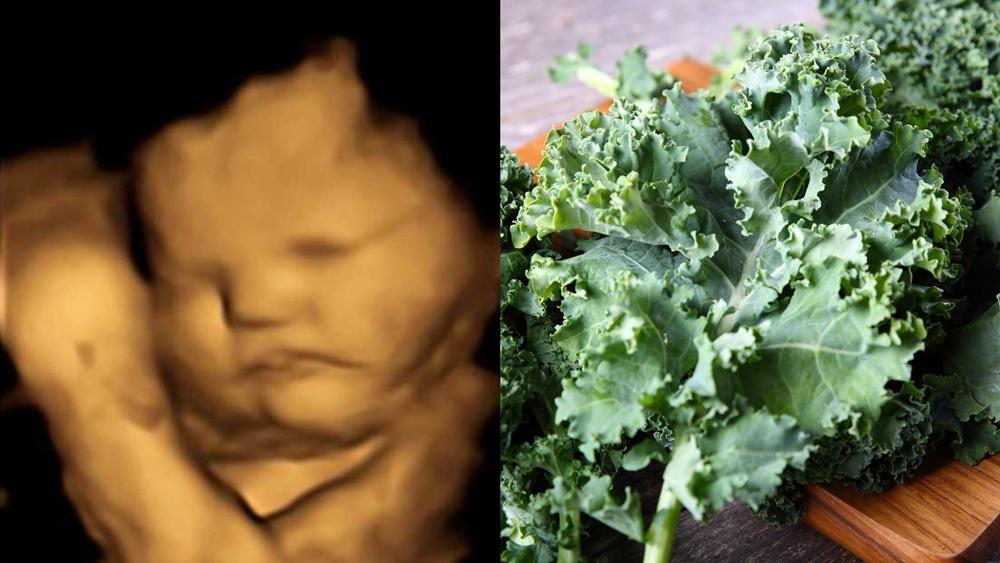Fetuses in the womb frowned after their mothers ate kale but smiled after they ate carrots, according to a new study of around 100 pregnant women and their fetuses in England.
The study offers a rare look at how fetuses respond to flavors in real time.
The researchers gave the participating women capsules containing powdered versions of the two foods. Thirty-five women consumed the equivalent of one medium carrot, and 34 women consumed the equivalent of 100 grams of chopped kale. The remaining 30 women didn’t consume either.
Twenty minutes later, ultrasound scans showed that most of the fetuses exposed to the kale flavor seemed to grimace, while most exposed to the carrot appeared to be laughing. The control group, meanwhile, didn’t have the same responses.
“We are the first ones who could actually show on an ultrasound scan the facial expressions in relation to the food which the mother has just consumed,” said Nadja Reissland, a co-author of the study and the head of the Fetal and Neonatal Research Lab at Durham University, according to a NBC report.
Previous research has shown that the amniotic fluid surrounding a fetus can have different smells or flavors depending on a pregnant person’s diet.
The fetuses in the new research were at 32 to 36 weeks’ gestation.


The ultrasound images suggest reactions similar to those of kids or adults who taste something bitter, Reissland said, but it’s not known whether fetuses actually experience emotions or dislikes in a similar manner.
In designing the new study, Reissland and her team chose powdered kale and carrots.
“The bitter flavor gets into the small intestines and then into the mother’s blood and then into the placenta and the amniotic fluid,” Reissland said. “This process seems to take around 20 minutes, and what you then get is a specific reaction of the fetuses to that flavor.”
Reissland thinks her study could improve our understanding of how exposure to flavors in the womb affects eating habits later in life. If a fetus repeatedly tastes kale in the womb, for instance, that baby may be more likely to tolerate — or even enjoy — the flavor once it starts eating solid food.
Limited free articles. Subscribe for full access.








 Dr. Bilal Philips
Dr. Bilal Philips